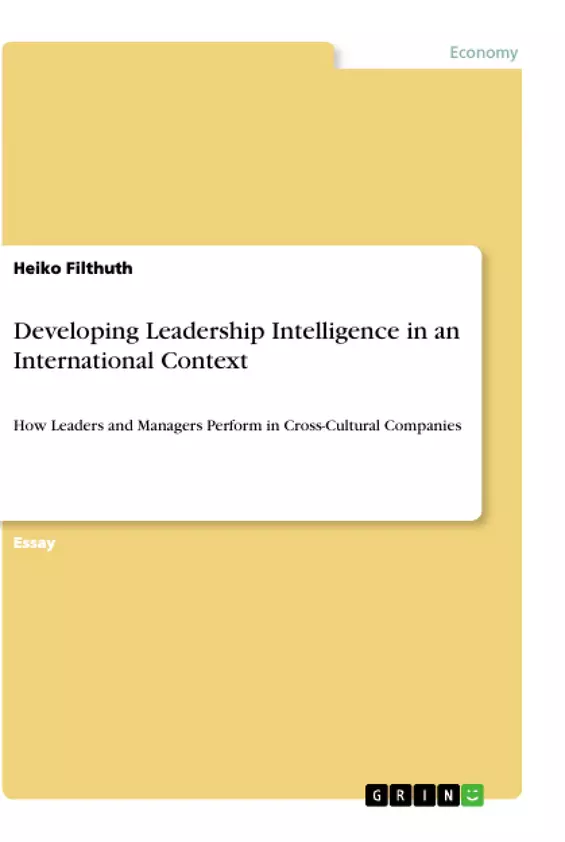Leadership and management are not the same and companies might require both to put their leadership into action. Particularly in international environments, leadership needs to reflect and respect cultural differences appropriately. Truly cross-cultural organisations, which recognise the individual requirements of its employees in all countries, require leadership intelligence executed by leaders and managers who authentically interact with their followers around the globe to achieve the desired growth and prosperity. This essay explains how leadership intelligence can be developed in an international context.
Inhaltsverzeichnis (Table of Contents)
- Introduction
- The Importance of Leadership
- Leadership and Management
- The Role of Growth in Leadership
- National vs. International Leadership
- Leadership and Ethics
- Identifying, Explaining and Evaluating Three Leadership Styles
- Theories and Models of Leadership
- Autocratic Leadership
Zielsetzung und Themenschwerpunkte (Objectives and Key Themes)
This essay aims to explain how leadership intelligence can be developed in an international context. It explores the importance of leadership from various perspectives, including operational, growth, cultural, and ethical aspects.
- The importance of leadership in achieving business success
- The evolution of leadership styles and their impact on organizations
- The interplay between leadership and cultural context in international environments
- The role of leadership in organizational growth and change management
- The ethical considerations and challenges of leadership in a globalized world
Zusammenfassung der Kapitel (Chapter Summaries)
The essay begins by examining the significant role of leadership in companies, highlighting its contribution to profitability and change management. It then delves into the evolution of leadership styles, from early personality-driven approaches to modern transformational and contingency leadership models.
The chapter on the importance of leadership explores the key aspects of leadership, including its connection to management, its impact on organizational growth, the differences between national and international leadership, and the ethical dimensions of leadership.
The chapter on identifying and evaluating leadership styles discusses various models and theories, emphasizing the traits, behavior, and contingency approaches. It then delves into the specific example of autocratic leadership, highlighting its characteristics and its potential for success in both national and international contexts.
Schlüsselwörter (Keywords)
The primary keywords and focus topics of the text include leadership intelligence, cross-cultural leadership, organizational growth, leadership styles, transformational leadership, contingency leadership, ethical leadership, and international business.
- Arbeit zitieren
- Heiko Filthuth (Autor:in), 2018, Developing Leadership Intelligence in an International Context, München, GRIN Verlag, https://www.grin.com/document/541349



